APS Janet Taylor Spence Award Recipients 2011
The APS Board of Directors is pleased to announce the 2011 recipients of the APS Janet Taylor Spence Award for Transformative Early Career Contributions, in recognition of the significant impact their work is having in the field of psychological science. The award recognizes the creativity and innovative work of promising scientists who represent the bright future ahead for psychological science. It places these recipients among the brightest minds in our field. This class of Spence awardees sets an impressively high standard for the award in years to come.
This award is a fitting tribute to its namesake, Janet Taylor Spence, the first elected President of APS. Whether in the field or the laboratory, Spence’s distinguished career is characterized both by its empirical rigor and its innovative theoretical approach. Her willingness to question the accepted led her to develop assessment techniques that continue to be used widely.
The awards will be conferred at the APS 23rd Annual Convention in Washington, DC in May. For more details on the convention, visit www.psychologicalscience.org/convention.
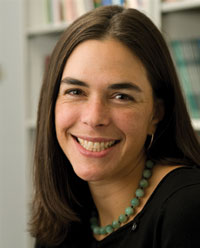 Sian Beilock
Sian Beilock
University of Chicago
What is the focus of your award-winning research?
The core of my research is based on the analysis of skilled performance in stressful academic situations. The types of stressors I explore range from (a) the chronic stress that a female math major might feel as a result of her awareness of the negative stereotype that “women’s math abilities are inferior to men’s” to (b) acute stressors that anyone might experience when they are in a high-stakes college admissions test to (c) trait anxieties about one’s performance in a particular domain (e.g., math anxiety). Using converging methodologies ranging from behavioral performance measures (e.g., accuracy and reaction time), to physiological measures of stress (e.g., salivary cortisol), to neuroimaging techniques (e.g., fMRI), I try to understand why poor performance occurs in stressful academic situations and to generate interventions to alleviate these unwanted performance decrements.
How did you develop an interest in this area?
I began my graduate work asking questions about how the performance of complex motor skills (e.g., a 5-foot golf putt) breakdown in pressure-filled situations and quickly became interested in skill success in failure in a variety of contexts – from the playing field to the classroom to the boardroom. Although there was a lot of research exploring the cognitive and neural correlates of skill success, there was less work addressing why performance failed in important situations. I was interested in understanding why this was the case and what could be done to alleviate less-than-optimal performances.
Who are your mentors and/or biggest psychological influences?
My graduate advisors, Tom Carr, Michigan State University, and Deb Feltz, Michigan State University, are two of the biggest influences in my academic career. They were both very supportive of tackling complex real world questions and taking on a line of research that did not sit squarely within one discipline of psychology, but instead straddled several different areas from cognitive psychology to education.
What unique factors have contributed to your early success?
Getting a handle on why we perform poorly in pressure-filled situations is of theoretical interest in terms of, for example, understanding the interplay of emotion and cognitive control, but many of my research questions also have a broader appeal in that we have all had experiences where we have not performed up to our potential because of the perceived stress of the situation. Because of this, I have been fortunate enough to conduct rigorous laboratory experiments as well as publish a popular audience book on my work, Choke: What the Secrets of the Brain Reveal About Getting It Right When You Have To. Being able to communicate psychological science to a general audience is something I am especially proud of.
What does winning this award mean to you both personally and professionally?
APS is an organization that upholds the best science in our field while at the same time making our work accessible to a general audience. Given that both of these endeavors are something I strive to achieve, I am honored to receive this APS award.
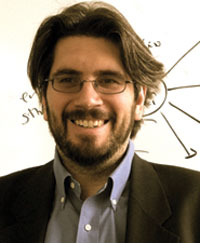 William A. Cunningham
William A. Cunningham
Ohio State University
What is the focus of your award-winning research?
My lab seeks to understand the cognitive and motivational processes underlying evaluative responses and emotion. Our work suggests that current affective states are constructed moment to moment from multiple component processes that integrate relevant information from various sources such as automatically activated attitudes, situational contexts, and personal goals. Most importantly, using paradigms from social cognition and cognitive neuroscience, we have shown that processes that were once thought to be fully automatic and under no volitional control can be modulated by shifting a person’s goals and motivations, even hundreds of milliseconds after seeing a stimulus. More recently, we have expanded our framework to investigate how disparate mental states combine to generate discrete emotional states.
How did you develop an interest in this area?
My research program progressed by my never quite feeling content with my current understanding of the mind. I have always felt that any idea I was currently entertaining couldn’t be complete, and I have always tried to integrate new ideas that appeared potentially relevant. Because of this, I try to surround myself with people who can provide novel perspectives. I have continuously pulled apart my ideas and attempted to re-assemble them in unique ways. My research has thus progressed naturally from attempting to understand religious intolerance, to studying prejudice and stereotyping, to attitudes and beliefs in general, to the neuroscience of affect, to now reconsidering the definition of emotion. Each preceding stage set the groundwork for what came after as I have worked to fill in the gaps of my knowledge. Because of this, my “research area” is quite fluid. Each new data point or observation opens up new opportunities for exploration.
Who are your mentors and/or biggest psychological influences?
I have been lucky to have had a series of amazing mentors and influences: my teachers in high school who turned me on to philosophy and psychology, my family who always placed a premium on debate and education, my advisors in undergraduate and graduate school, my faculty colleagues, and now my graduate students. Throughout my career, the people that have influenced me most have been the people that have challenged me and pushed me to reach my potential. In college, I was fortunate to work with John Nezlek , College of William & Mary, and Peter Derks , College of William & Mary, who shaped much of my perspective on how to think about scientific questions. In graduate school, I had the opportunity to work with Mahzarin Banaji , Harvard University, and Marcia Johnson , Yale University, (my wire and cloth mothers) who both gave me the space to explore, chase ideas, and construct my perspective. I cannot imagine a more perfect set of mentors.
Yet, I have had so many more mentors than just the formal ones: Liz Phelps, New York University, and John Gore at Yale; Neil Macrae, University of Aberdeen , Scotland, and Todd Heatherton during my weekend trips to Dartmouth; Phil Zelazo, University of Minnesota, Jordan Peterson, University of Toronto, Adam Anderson, University of Toronto, and Jay Pratt, University of Toronto, during my first years as an assistant professor at the University of Toronto; Marilynn Brewer, University of New South Wales, Australia, Russ Fazio, Ohio State University and Rich Petty now at Ohio State; and now in the emotion community Lisa Feldman Barrett, Northeastern University, and Gerry Clore, University of Virginia, – and this is such an incomplete list. Further, inspiration does not only flow from more senior scientists to more junior ones. Many of my research ideas now come from fantastic graduate students who challenge assumptions and generate new avenues for theory and research.
What unique factors have contributed to your early success?
It is difficult to judge yourself, particularly why you have been successful or not, but I know what I enjoy about the process of psychological science, and I believe that being passionate about what you do and enjoying the process of science from moment to moment has to give the intrinsic motivation that helps lead to success. Many of my successes, I think, are from being open to opportunities when presented and not being concerned about the apparent divisions within science. When I am the most open, I realize how little I know; the trick has been to be comfortable with this mental state. Because of this, I think that I have been willing to explore outside of the traditional boundaries of psychological science, and try to see how what I believe to be true needs to be modified by new perspectives. I think that approaching science this way has fostered a need for exploration and a desire to surround myself with people far smarter than I am.
It is easy to take too much credit for your own successes, and miss the important environments that contribute to development. At both the undergraduate and graduate levels, I was lucky enough to find places that fostered and reinforced an openness to ideas and that challenged my preconceptions. Both at The College of William & Mary and at Yale University, traditional boundaries were often disregarded and the question was always put before the method.
In addition, the field of social psychology changed in the late 1990s. At the same time as I was spending my evenings at the Medical School learning the methods of fMRI, several other students around the world were simultaneously considering the ways that cognitive neuroscience could merge with social cognition. During these formative years, I met and became friends with Matt Lieberman, The University of California, Los Angeles, Kevin Ochsner, Columbia University, Rebecca Saxe, Massachusetts Institute of Technology, David Amodio, New York University, Jason Mitchell, Harvard University, Joan Chiao, Northwestern University, Jennifer Beer, the University of Texas at Austin, and many others. Much of my personal success in many ways stems from our collective success and the support that we gave each other especially in those early days.
What does winning this award mean to you both personally and professionally?
Research is a team activity, and any of my successes result from the interactions that I have had with so many influential people. I see this award as further validating an expansive approach to psychological science. This award is shared with all my formal and informal mentors that I have had the privilege to work with and learn from.
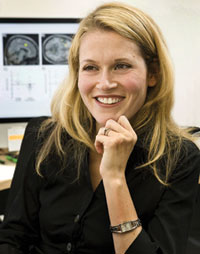 Naomi I. Eisenberger
Naomi I. Eisenberger
University of California, Los Angeles
What is the focus of your award-winning research?
I am primarily interested in trying to understand why our social relationships have such a profound impact on our emotional and physical well-being. To explore this, I ask questions like: “Why does social rejection hurt?” or “Why does being socially connected feel so rewarding?” and then use neuroimaging techniques to explore the basic neural systems that underlie these complex socioemotional experiences.
My primary line of research has investigated the similarities in the ways in which individuals process physical pain and social pain (the pain associated with social rejection or loss). Here, I have argued that, based on the importance of social connection for mammalian survival, socially painful experiences may activate some of the same neural regions that typically process physical pain — borrowing the pain signal to prevent social disconnection. To investigate this hypothesized physical-social pain overlap, my laboratory members and I have utilized a combination of behavioral, neuroimaging, and genetic methods to demonstrate that experiences of physical and social pain rely on shared neural and experiential substrates.
More recently, my laboratory members and I have also started to explore the neural correlates that underlie the positive feelings associated with experiences of social connection. Along these lines, we have recently shown that providing support to loved ones relies on some of the same neural structures that process the rewarding experience associated with winning money.
How did you develop an interest in this area?
As with most of my research interests, my desire to understand the powerful impact of social relationships on well-being came largely from personal experience. It had always intrigued me that the experience of being rejected or the possibility of being rejected could lead to such strong emotional and physiological changes. For instance we all know that being picked last for a team “hurts,” that there is a certain apprehension associated with having to perform in front of others (in case they are disapproving), and that we will often change our most basic behaviors in order to avoid being socially excluded. In fact, most of the early work on the social psychology of conformity operated under the implicit assumption that people were willing to conform to the behavior of others, in part, because they were worried about being left out or excluded. However, on the surface, it is not clear why these simple instances of rejection should have such a dramatic effect on emotional and physiological responses (i.e., why should we care about being picked last for a team?). My interest in this area stemmed from noticing the intensity of the feelings that are stirred up by social rejection and trying to understand why.
Who are your mentors and/or biggest psychological influences?
I feel very fortunate to have had several mentors, each of whom has greatly influenced my thinking about psychological science. My undergraduate mentor — Margaret Kemeny, University of California, San Francisco — was the first to introduce me to the excitement of psychological research and to show me that I could answer so many of my questions with research methods. My graduate mentor — Shelley Taylor, University of California, Los Angeles — was and still is an amazing role model who inspires me every day to pursue my research interests without fear and without letting any obstacles get in my way. My postgraduate mentor — Michael Irwin, University of California, Los Angeles — taught me how to think about the practical and clinical implications of my work and trained me in grant writing, one of the most important skills that can be gained as a young faculty member. In addition, throughout my career, probably my biggest psychological influence has been Matt Lieberman, University of California, Los Angeles. Not only did he introduce me to the methods of social cognitive neuroscience, but he helped me to quickly learn the language of this developing field. Together, we have been able to share our deep appreciation for the nature of psychological experience — and have been better able to understand it by sharing and comparing two perspectives instead of one.
Finally, though I will never be able to meet either of these individuals, both John Bowlby and William James have been significant psychological influences on me. Bowlby has influenced me greatly by demonstrating that it is possible to formulate a scientific theory about something that might seem too “mushy” for scientific investigation — namely the strong bond that forms between a caregiver and child. William James has been influential and inspiring by demonstrating through his writing, the importance of psychological experience — that it is worthy of being focused on, that it can be accurately described, and that it should be scientifically explored.
What unique factors have contributed to your early success?
Besides luck, I think one factor that has helped me is the fact that I tend to be drawn towards topics that are central to human experience (social pain, social connection) but perhaps were not the focus of psychological science when I began to study them. Although it can be unsettling to be in an area where there is not a lot of research being conducted, it can also be helpful to be there first.
What does winning this award mean to you both personally and professionally?
Personally, I am exceptionally grateful for this award. It is truly an honor to be recognized along with such other incredibly impressive researchers. Professionally, it is encouraging to know that this line of work, which focuses primarily on everyday social feelings (e.g., rejection, connection), is being recognized. It reaffirms that these emotional states, which can sometimes seem elusive or diffuse, can actually be studied with scientific methods. Finally, this award reminds me of how lucky I am, as an academic, to be able to focus on trying to answer the kind of questions that so many of us think about everyday — questions about our inherent social nature.
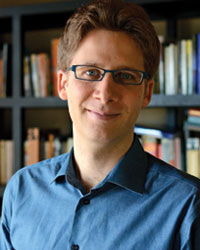 Thomas L. Griffiths
Thomas L. Griffiths
University of California, Berkeley
What is the focus of your award-winning research?
My research explores mathematical models of human cognition, trying to understand how people do things like learn categories, causal relationships, and languages, and how we can make computers do likewise. My approach focuses on how we can understand human learning by thinking about the abstract computational problems that underlie these capacities and the ideal solutions to those problems. In particular, much of my work uses ideas from probability theory and Bayesian statistics to make sense of the inductive leaps that people make whenever they need to draw conclusions from limited data, which is a common element in all of these forms of learning. These statistical ideas provide a set of tools for analyzing human learning, and a link to research in computer science on artificial intelligence and machine learning.
How did you develop an interest in this area?
I went to university wanting to learn about all the things we know the least about, such as the human mind. A couple of years into my degree I took a philosophy class that used a book about neural networks, which got me excited about the prospect of using math to model human cognition. I spent that summer reading everything I could get my hands on about mathematical models of cognition, and devising grand theories of the mind. I figured out that Mike Kalish, University of Louisiana at Lafayette, was the person I should talk to about this at my university, and I pinned him down in a hallway at 9 a.m. on the first day of classes to express my enthusiasm. Despite this, he let me work in his lab, where I learned a lot more about statistics and computer programming and got on the path to grad school.
Who are your mentors and/or biggest psychological influences?
Mike Kalish, University of Louisiana at Lafayette, and Stephan Lewandowsky, University of Western Australia, introduced me to cognitive science, and we recently started working together again on a project exploring how information changes when it is passed from person to person. I applied to Stanford for grad school hoping to work with Roger Shepard, Stanford University, and David Rumelhart, not knowing that neither was taking students. I was lucky enough to have my folder pulled from the stack by Josh Tenenbaum, Massachusetts Institute of Technology, who was a great advisor. Since then, Rich Shiffrin, Indiana University, and Rich Ivry, University of California, Berkeley, have been generous mentors and advocates.
In terms of influences, the approach of thinking about the abstract computational problems underlying cognition was championed by Roger Shepard, Stanford University, and David Marr. John Anderson, Carnegie Mellon University, and Nick Chater, University College London, UK, were both early proponents of using “rational” models to understand human cognition, and I often find myself rediscovering things that they first thought about years earlier.
What unique factors have contributed to your early success?
I have been lucky enough to work on a “hot topic,” with interest in ideas from Bayesian statistics having grown in psychology and other disciplines. I have also had a great set of collaborators, labmates, and students, which has made it possible to explore a broad range of topics, and made doing research even more enjoyable!
What does winning this award mean to you both personally and professionally?
I am honored to be included in what is already a distinguished list of recipients. Despite focusing on connections to statistics and computer science in my research, my training has all been in psychology, so it is wonderful to be receiving an award from this community.
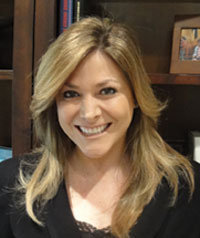 Wendy B. Mendes
Wendy B. Mendes
University of California, San Francisco
What is the focus of your award-winning research?
The research in my lab focuses on embodiment or how the mind and body reciprocally influence each other. Specifically, we examine how emotions, stress, and motivation are experienced in the brain and body and how those bodily changes influence behavior and decision-making. For example, in some research we explore how inter-racial anxiety is manifested in physiological responses and how those responses influence treatment and behavior towards outgroup members. Other studies have examined how stress can be differentiated into “good” and “bad” stress physiology and how “good” stress can positively influence judgment and decision making. We also take seriously the idea of individual differences in the neurobiological milieu which can buffer stress reactions and influence complicated behavior, like creativity. In most of my studies we are attempting to bridge mental states, neurobiological changes and behavior. Of course some of the most interesting findings are when we don’t observe the expected relationships among these factors because of chronic stress, physical disease, or aging.
How did you develop an interest in this area?
My interests in bridging these areas began in graduate school working in a social psychophysiology lab, and continued during my post-doc years at UC San Francisco in psychoneuroendocrinology, then sharpened during my six years as faculty at Harvard with exposure to related areas in neuroscience, public health, and molecular and cell biology, and is influenced in my new position at the medical school at UC San Francisco which provides interactions with psychiatrists, medical researchers, and bench scientists.
Who are your mentors and/or biggest psychological influences?
There have been two primary sources of inspiration. The first was my graduate training at University of California, Santa Barbara that provided a solid foundation of breadth and depth of social psychology. Most notably, my graduate adviser, Jim Blascovich, University of California, Santa Barbara, is extraordinarily creative and he made me think of social psychology as theater – we created immersive, vivid, and real situations in a lab that engendered strong emotional and stressful reactions. Brenda Major, University of California, Santa Barbara, was also instrumental in a different, but equally important, way and that was demonstrating how to think about theory in clear conceptual and testable models. The second source of inspiration was at Harvard. Social psychologists like Mahzarin Banaji, Dan Wegner, Richard Hackman, Jason Mitchell and Dan Gilbert, and others outside of social psychology like Lisa Feldman Barrett (now at Northeastern University), Randy Buckner, Liz Spelke, Matt Nock, and Jill Hooley, all contributed in large and small ways to how I approach psychological science, in particular, and science, more broadly. There is a style of thinking and approach to research at Harvard that has profoundly shaped how I develop research ideas. The thinking is integrative not just within psychology but beyond psychology with most of the faculty collaborating with people from other departments like linguistics, public health, sociology, philosophy, economics, and molecular and cell biology. Psychology became larger to me during my time at Harvard and though the scope of psychology seemed humbling, it also inspired me to learn and borrow from other disciplines including other social sciences, as well as humanities and life sciences.
What unique factors have contributed to your early success?
Clearly from the people I just listed I have been extraordinarily lucky to be surrounded by some of the greatest minds in psychology. I have benefited from long discussions with them and just being around them and paying attention to how they think about ideas. In addition there are two other factors (one situational and the other personal) that I think were especially important. The first is that I have terrific graduate students and post-docs who work with me and take the ideas we pursue seriously. Colleagues are great, but the people who inhabit your lab are the ones who animate the ideas and make the ideas come alive in studies. The second factor is a combination of personal factors: I read broadly, I write every day, I try to be helpful to other researchers, and I pay attention to what my data are telling me and try not to get so wedded to my ideas that it blinds me to what the data are trying to tell me.
What does winning this award mean to you both personally and professionally?
This award is especially meaningful to me because it is named in honor of one of my academic heroes: Janet Spence. She was conducting interdisciplinary and translational research years before there was a global call for this type of work or even a name for bridging areas and applying theory and empirical data to important societal concerns. I am in awe of Dr. Spence’s career which from an outsider’s perspective seems to consist of seamless transitions from many different areas of expertise from individual differences to motivation to gender identity, and in each of these areas she made tremendous gains in our understanding. I can only hope to have a career half as impactful and far-reaching as hers.
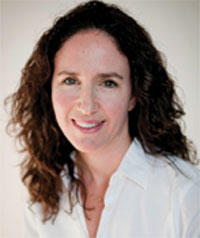 Daphna Shohamy
Daphna Shohamy
Columbia University
What is the focus of your award-winning research?
My research aims to understand how we learn from experience, how we use what we learn to guide decisions and actions, and how this happens in the brain. Within this broad context, some of the specific questions motivating my work are: When are decisions guided by explicit knowledge and when by implicitly learned associations or biases? Are explicit and implicit memories supported by independent cognitive and neural systems (as popular view suggests)? Or, is there some form of cross-talk between them?
I address these questions using an integrative approach that draws broadly on psychology and neuroscience to make predictions about cognition. Predictions are tested in behavioral and neuroimaging studies in healthy individuals and in patient populations with isolated damage to specific brain systems. Imaging studies tell us about the spatial and temporal characteristics of neural and psychological mechanisms. Neuropsychological studies augment this approach and provide direct evidence of the necessity of a system for specific cognitive processes.
By integrating imaging and patient studies, my work has shown how multiple brain systems for learning interact and jointly modulate our representations of the world. This suggests that the popular “dual-system” view of memory may be over-simplified and raises questions about the different ways in which we learn about the environment and how we use what we learn to make decisions.
How did you develop an interest in this area?
My interest in this area was shaped as much by circumstances as by inherent interest. I have always been intrigued by the idea that our brains, and our selves, are flexible, malleable, and dynamic; and that our everyday experiences, both big and small, have a long-term impact on who we are and what we do. Beyond these broad interests, in reality, circumstances have played an enormous role in each decision, each project, each collaboration. Understanding how this happens — how circumstances affect our choices — is at the heart of the scientific challenge I have been trying to address.
Who are your mentors and/or biggest psychological influences?
This is too good an opportunity to pass up, so I have to first mention my parents (how often do we scientists get to thank our parents?). My parents taught me, in many different ways, that one’s career should be challenging, interesting, and pleasurable. In science I consider myself fortunate to have had inspiring and supportive mentors and colleagues. I did my graduate work with Mark Gluck at Rutgers University; my postdoctoral mentor was Anthony Wagner at Stanford University. Everything I have done and continue to do has been heavily influenced by what they taught me both about science as well as what it means to be a mentor in the truest sense of the word.
My research has been and continues to be collaborative, not only because of the interdisciplinary nature of the methods I use, but because it is my experience that working with smart and talented people is more fun and leads to better science. Some of the individuals who have had a particularly strong influence on my work are Catherine Myers, Rutgers University, Russ Poldrack, University of Texas at Austin, Nathaniel Daw, New York University, Alison Adcock, Duke University, Natasha Kirkham, Birkbeck, University of London, and Tor Wager, University of Colorado at Boulder. One of the most exciting things about having my own lab is the opportunity to mentor my own students and postdocs and to learn from them, which has been incredibly satisfying.
What unique factors have contributed to your early success?
I love what I do and I love the challenges in this line of work. When I started graduate school I was interested in understanding the flexibility and plasticity of the brain and mind. This directed me to work on disciplines that are traditionally studied separately (such as learning, memory, and decision making) and to use converging methods (human behavior, fMRI, and patient studies). I believe this integrated approach has offered a fresh perspective on some long-standing theoretical questions which in turn provided new answers to these questions. I am delighted that these questions turned out to be timely and interesting to other people too.
What does winning this award mean to you both personally and professionally?
Winning this award is a great honor and a wonderful recognition. We spend our days in the lab. We do research that can take years to pan out, when it does. Being recognized by my colleagues for my work at this early stage is enormously satisfying and motivating. Being recognized by this particular award, in honor of a formidable woman and scientist, makes it even more special.





APS regularly opens certain online articles for discussion on our website. Effective February 2021, you must be a logged-in APS member to post comments. By posting a comment, you agree to our Community Guidelines and the display of your profile information, including your name and affiliation. Any opinions, findings, conclusions, or recommendations present in article comments are those of the writers and do not necessarily reflect the views of APS or the article’s author. For more information, please see our Community Guidelines.
Please login with your APS account to comment.